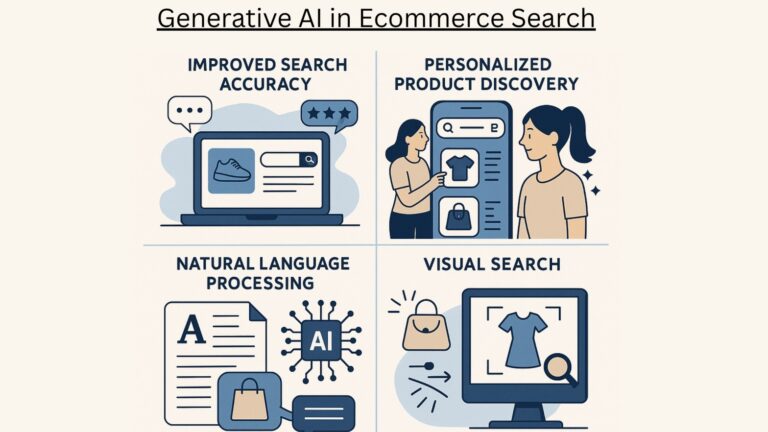Choosing the right site search and merchandising solution is a critical decision for any growing eCommerce brand. With online competition intensifying and customer expectations rising, having a powerful product discovery engine can directly impact revenue, engagement, and conversion rates.
Among the leading players in this space, Searchspring and Klevu are two well-known platforms that offer AI-powered site search, dynamic merchandising, and product recommendation features. But how do they compare?
In this post, we take a deep dive into Searchspring vs Klevu to help you determine which tool might be the better fit for your business.
What Is Searchspring?
Searchspring is an enterprise-grade eCommerce search and merchandising platform designed for brands that want granular control over product visibility and customer search experiences. It offers robust features that cater to merchandising teams, product managers, and marketers.
Some of its core strengths include hybrid rule-based and AI-powered search logic, advanced filter customization, visual merchandising, and A/B testing tools. Merchants who value hands-on control and precision often prefer Searchspring for its flexibility.
What Is Klevu?
Klevu is an AI-driven product discovery platform that combines search, category navigation, and product recommendations into one solution. Known for its automation-first approach and natural language processing (NLP) capabilities, Klevu allows merchants to quickly implement intelligent search with minimal manual setup.
Klevu appeals to businesses that prefer an AI-guided customer experience, real-time personalization, and a fast, plug-and-play deployment process across multiple eCommerce platforms.
Pricing Overview
Neither Searchspring nor Klevu publishes pricing information on their websites. Both platforms follow a custom quote-based model, with pricing influenced by several variables including:
-
Monthly traffic volume
-
Catalog size (number of SKUs)
-
Number of enabled features (e.g., search only vs. full suite)
-
Integrations and support levels
Searchspring is generally considered a higher-cost solution due to its extensive customization capabilities. Klevu, while scalable and powerful, may offer more flexibility for smaller or mid-market stores looking to grow into their feature set.
To get a clear estimate, merchants are advised to request tailored demos and quotes from each provider.
Use Case Scenarios
Searchspring is often chosen by larger eCommerce brands that have in-house merchandising teams and need detailed control over how products are displayed, filtered, and ranked. It’s a good fit for businesses that have specific workflows, advanced merchandising strategies, and want to run detailed A/B tests on search performance.
Klevu, in contrast, is ideal for businesses looking to implement intelligent site search without getting into the weeds of rule-based configuration. Its strength lies in automation, contextual personalization, and NLP — which makes it attractive for stores that prioritize quick deployment and data-driven customer experiences.
Pros and Cons
Searchspring
Pros:
-
Extensive control over merchandising and search logic
-
Excellent for large catalogs and complex filtering needs
-
Powerful analytics and testing capabilities
Cons:
-
Steep learning curve for non-technical teams
-
Longer implementation cycle
-
Typically higher cost, especially for smaller businesses
Klevu
Pros:
-
Fast setup with minimal configuration
-
Natural language search and AI-driven recommendations
-
Scalable solution for mid-sized and growing stores
Cons:
-
Limited manual control compared to rule-based systems
-
Feature access depends on pricing tier
-
Merchandising depth may be limited for very large product catalogs
Final Verdict: Searchspring vs Klevu
Both Searchspring and Klevu are excellent product discovery solutions — but they are suited to different types of eCommerce operations.
Choose Searchspring if:
-
You have an internal team ready to manage merchandising
-
You need advanced control over filters and rankings
-
You want to test and fine-tune every aspect of the user journey
Choose Klevu if:
-
You want to launch quickly with minimal overhead
-
You value AI-led search, NLP, and automation
-
You’re looking for an intelligent system that adapts to customer behavior in real time
One More Option to Consider
If neither solution perfectly aligns with your goals or budget, and you’re seeking a simpler, more cost-effective platform that still offers high-quality, AI-powered search and product recommendations — ExpertRec is worth exploring.
Frequently Asked Questions about Searchspring vs Klevu
What is the main difference between Searchspring and Klevu?
Searchspring focuses on manual merchandising control and detailed customization, while Klevu emphasizes AI automation and faster deployment.
Which platform is better for fast setup?
Klevu is generally easier and quicker to implement, making it ideal for businesses that want a plug-and-play AI solution.
Does Searchspring support personalized product recommendations?
Yes, Searchspring offers recommendation tools, especially in its mid to high-tier plans, allowing merchants to guide shoppers toward relevant products.
Is Klevu good for multilingual stores?
Yes, Klevu includes multilingual and NLP-based search support, making it suitable for international eCommerce stores.
Which platform is more affordable?
Both platforms use custom quote-based pricing. Klevu may offer more scalable entry points, while Searchspring is often positioned at a higher price tier for larger retailers.




